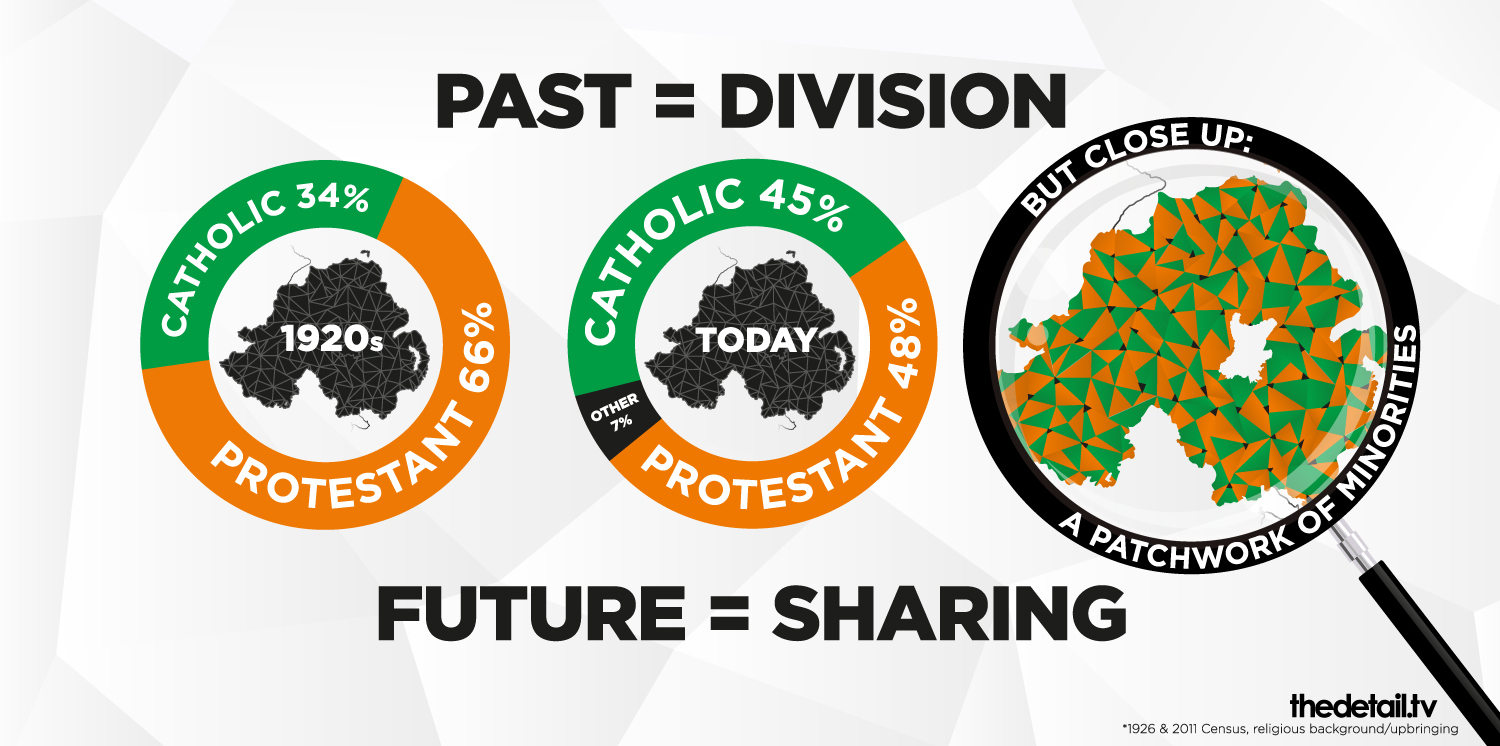The Detail’s ‘Imaging NI’ project used infographics to examine Northern Ireland politics. Here the chair of the Community Relations Council, Peter Osborne, discusses how the presentation of challenging facts can be the basis for a positive debate on the future.
THE Detail’s series of infographics provides a stark reminder of some of the outstanding issues facing Northern Ireland.
The series was supported by the Community Relations Council media grants scheme and the reaction to it so far has been quite remarkable.
All of the infographics are based on fact not on perception, spin or gainsay.
The Detail deserves much credit for sparking a debate about the changes this society is experiencing, about who we are now and the issues ahead of us.
The statistics demonstrate that this is now a region of minorities – all sorts of minorities.
It is a society managing complex issues within an even more complex set of relationships.
The realities of demographic change for the traditional Orange and Green divide are highlighted in a series of graphics of the religious and national identity breakdown from the 2011 census and by Council area.
The challenge for relationships is perhaps most evidently shown, for example, in Belfast where for the first time in the city’s history, neither Catholic nor Protestant, unionist or nationalist, are in a majority.
In addition, a growing minority ethnic community is evident enriching this society so much by its social, economic and cultural contribution.
The LGBT community, at an estimated 6% or more of the population, organises one of the biggest annual festivals in Northern Ireland.
There are times when perception is more dangerous than reality. There are times when intolerance, ignorance and enmity are fuelled by a lethal mix of inaccuracy, improbity and sensationalism.
As we move forward it is more and more important to understand other minorities, exchange ideas and opinions, feelings and aspirations.
Genuineness and openness in those exchanges will underpin the value of the dialogue and the prospect of finding common ground.
Respecting other minorities is a touchstone expectation – especially if people want that respect reciprocated.
And so an attack on one person in any minority, regardless of whether it is due to a person’s religion, ethnicity, sexual orientation or politics, is an attack on the aspirations we all should have for this region, as warm, welcoming, diverse and safe for all.
While we all may have different interpretations and disagree on next steps, the facts can help stimulate thinking, provoke urgency and provide answers.
Facts can be an essential starting point whether they relate to demographic realities, gender and age issues, parades statistics, shared roots of language, the numbers of victims or the social and economic consequences of educational under-achievement.
Facts can be a foundation for robust but constructive dialogue to find a way forward in the interests of all.
Facts can correct misapprehensions.
Facts can overcome the errors and mis-perceptions that prevent conversations starting in the first place.
Factual accuracy must be the basis of any way forward on these issues or a sense of injustice will be created that derails any agreement and undermines trust.
This is still a conflicted society with strong ancestral voices that resonate loudly. If we are to be on the right side of history we must embrace our past, everyone’s past, and grasp even more strongly the opportunities of the 21stcentury.
We are all minorities now. Walking alone isn’t an option.
